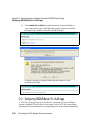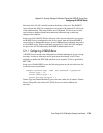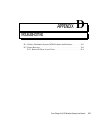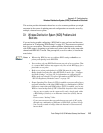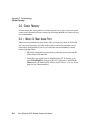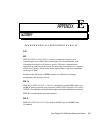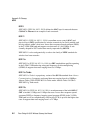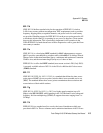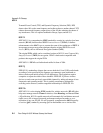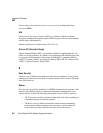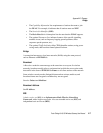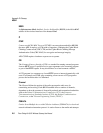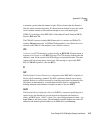Appendix E: Glossary
802.3
E-2
Psion Teklogix 9160 G2 Wireless Gateway User Manual
802.3
IEEE 802.3 (IEEE Std. 802.3-2002) defines the MAC layer for networks that use
CSMA/CA. Ethernet is an example of such a network.
802.11
IEEE 802.11 (IEEE Std. 802.11-1999) is a medium access control (MAC) and
physical layer (PHY) specification for wireless connectivity for fixed, portable, and
moving stations within a local area. It uses direct sequence spread spectrum (DSSS)
in the 2.4 GHz ISM band and supports raw data rates of 1 and 2 Mbps. It was
formally adopted in 1997 but has been mostly superseded by 802.11b.
IEEE 802.11 is also used generically to refer to the family of IEEE standards for
wireless local area networks.
802.11a
IEEE 802.11a (IEEE Std. 802.11a-1999) is a PHY standard that specifies operating
in the 5 GHz U-NII band using orthogonal frequency division multiplexing
(OFDM). It supports data rates ranging from 6 to 54 Mbps.
802.11a Turbo
IEEE 802.11a Turbo is a proprietary variant of the 802.11a standard from Atheros
Communications. It supports accelerated data rates ranging from 6 to 108Mbps.
Atheros Turbo 5 GHz is IEEE 802.11a Turbo mode. Atheros Turbo 2.4 GHz is
IEEE 802.11g Turbo mode.
802.11b
IEEE 802.11b (IEEE Std. 802.11b-1999) is an enhancement of the initial 802.11
PHY to include 5.5 Mbps and 11 Mbps data rates. It uses direct sequence spread
spectrum (DSSS) or frequency hopping spread spectrum (FHSS) in the 2.4 GHz
ISM band as well as complementary code keying (CCK) to provide the higher data
rates. It supports data rates ranging from 1 to 11 Mbps.



